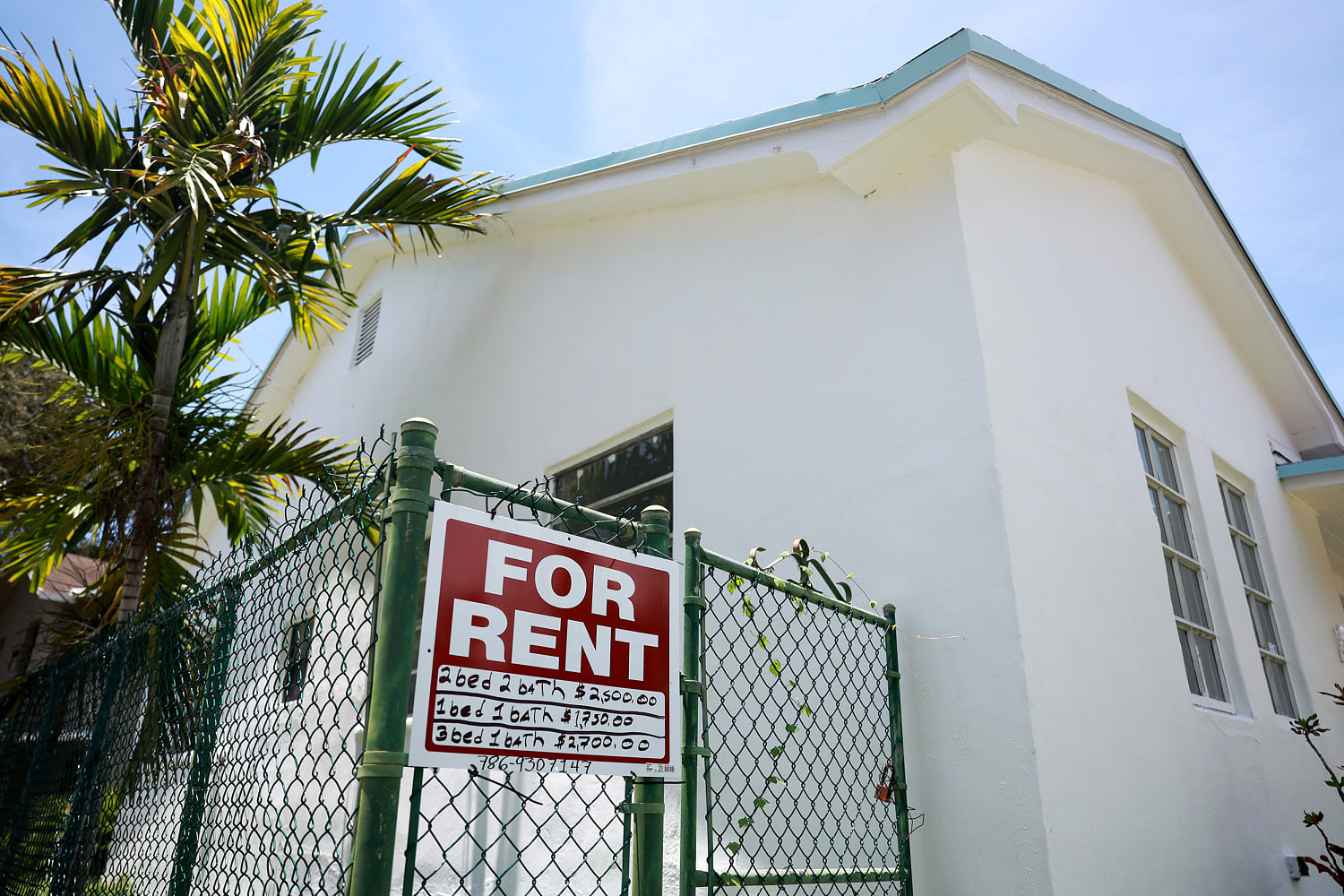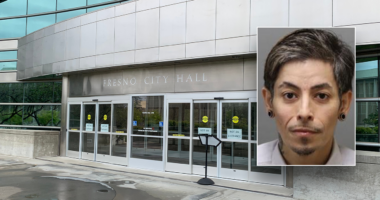Share this @internewscast.com

Jessica Moreno and her family lived happily in Charlotte, North Carolina, she said, until new owners bought the property where their rented mobile home was located, changing services and significantly raising prices.
“Where were we going to find a rent of 300 dollars? Nowhere. That’s why we had to leave,” Moreno said. “I constantly see that when companies buy houses, the poor have to leave because rents and services go up, it’s like that.”
Her family’s experience spurred Moreno to become a community organizer at Action NC, a grassroots mobilization group aimed at tackling inequality and poverty. “Maybe we don’t understand that we can push laws to change things,” she said.
Wall Street firms entered the single-family rental market after the 2008 housing crisis by purchasing foreclosed homes. Since then, their influence has continued to increase and the number of corporate landlords today is significant across the entire U.S. housing system: single-family and multifamily housing, manufactured housing such as mobile homes, subsidized affordable housing and student housing.
Many entities, such as hedge funds, were able to leverage their financial resources to purchase foreclosed homes wholesale. Instead of selling them, many investors chose to enter the rental market, providing a vital service at a time when many families were facing credit challenges.
By June 2022, institutional investors owned 3% of all single-family rentals nationwide. But in the most affordable markets, they owned considerable market share: in Charlotte, where Moreno lived, it was 20%, according to figures from the Urban Institute.
Corporate owners have been especially attracted to the Sunbelt states: After the Great Recession of 2007-2008, they invested in the region because there were a lot of foreclosed homes, and even today homes are cheaper there than in other parts of the country. It’s also a region that has seen the most economic growth in places like Atlanta, Charlotte, Austin and Phoenix.
“Corporate landlords tend to invest in areas where they believe demand will increase so they can charge higher rents. There is some overlap between these geographic factors and places that have high Latino populations,” said Madeline Bankson, housing research coordinator at the Private Equity Stakeholder Project.
In Charlotte, “I have seen that several families have to live in one house, because they have to have a lot of income to be able to pay the rent,” Moreno said.
These institutional investors “are not only buying houses but they are developing entire communities in order to rent them, and I see that as a great danger,” said Moreno.
‘We have a housing crisis’
Although massive housing purchases by corporations helped stabilize the housing market after a period of great crisis in the U.S., many experts argue that there are long-term consequences.
“In my neighborhood there are companies that are buying apartment buildings and using the pretext that they are going to make repairs to the homes and that is why people have to leave,” Mario Fonseca, 30, an information technology specialist in Costa Mesa, California, said in an interview with Noticias Telemundo in October. “But when you ask at City Hall, these companies did not request any permit to fix anything, and what they do is paint the units and then rent them much more expensively.”
When there is landlord abuse, “most of America does not have enough protections to protect tenants,” Bankson said.
Several legislators have proposed laws that regulate or limit the activity of Wall Street corporations in the real estate market.
In 2022, California congressional Democrats Roy Khanna, Katie Porter and Mark Takano introduced the Stop Wall Street Landlords Act to curb the role of institutional investors in the single-family home market and try to curb speculation.
“We have a housing crisis in the United States,” Khanna said in an interview with Noticias Telemundo. “I am the son of immigrants and my parents came to this country so they could buy a house so that their children could also have one. Now, the largest group that wants to buy houses is the Latino community. In my district, a third of all new home buyers, almost 480,000, are Latino, and yet, they are being left out.”
If passed by Congress, the legislation would impose a tax on new and existing purchases of single-family rentals by institutional investors. It would also prohibit Fannie Mae, Freddie Mac and Ginnie Mae from purchasing and securitizing mortgages held by large institutional investors who use debt to buy single-family homes and rent them out.
“Corporations are buying single-family homes precisely in the places where someone can get a new house for $200,000 $300,000, $400,000,” Khanna said. “My taxes should not help the capital funds. We have to return those properties to the people who want the American dream, like many in the Latino community.”
Last month, Rep. Adam Smith, D-Wash., and Sen. Jeff Merkley, D-Ore., introduced a bill in both chambers of Congress that would ban hedge funds and other investors from owning single-family homes.
The legislation would require hedge funds to sell at least 10% of the total number of single-family homes they currently own over a 10-year period and, after that move, would introduce a complete ownership ban.
Revenue for investors, more costs to tenants
“From a business perspective, the investments of these corporations have been incredibly profitable. That’s why there are a lot of dollars flowing into that market, and companies are prepared to continue increasing the number of homes they own,” said Elora Raymond, an urban planner and assistant professor in the School of City and Regional Planning in the College of Design at Georgia Tech.
“Other countries have taken steps to require these companies to get rid of their investments and stop competing with people who want to buy their homes,” Raymond said.
According to Bankson, the private equity model involves purchasing “undervalued assets” and then aiming to earn a return for their investors of 15 to 20% in a short period of time, usually between three and seven years, which is double the return of other investments.
This can produce very negative outcomes for tenants, Bankson said, since companies increase revenue and reduce costs by raising rents and evicting lower-paying tenants — and by adding more fees and fines on everything from garbage, sewer and water to parking and other things. Additionally, the landlord can impose significant penalties for late rent payments or other violations of the lease, she said.
In a 2019 study, Cornell University professor and researcher Suzanne Lanyi Charles found that corporate ownership of housing is closely linked to locations where foreclosures had taken place in 2007 and 2008, which greatly impacted Latino and Black communities.
According to Pew Research, Latinos lost 66% of their household wealth as a result of the housing crisis at that time.
“With respect to low-income Black and Hispanic neighborhoods, the effects of the housing crisis have shifted from concentrated single-family foreclosures to concentrated single-family rentals,” Charles wrote.
More prospective renters and buyers, but not enough homes
Latinos are particularly important to the real estate market; the Urban Institute projects that, by 2040, about 70% of new homeowners will be Latino.
“The problem is that there is a huge shortage of housing — Freddie Mac puts the gap at about 3.8 million units,” said Samuel Kenney, a senior policy analyst at UnidosUS, the country’s largest Latino civil rights and advocacy group. “We are not building houses that are affordable for those trying to buy their first home.”
Even as the housing market slows, investors have remained active, purchasing 26% of single-family homes sold in June 2023, according to CoreLogic, a data analytics company.
UnidosUS has developed the Home Ownership Means Equity Initiative, with a goal of helping create 4 million new Latino homeowners by 2030.
But for many, the situation is tough.
Stella Inciarte, a Venezuelan sales representative who lives in San Jose, California, said that if she wants to buy something soon, she’s going to have to leave, “maybe buy in Elk Grove or another city closer to Sacramento, because here in San Jose it’s almost impossible … I’m going to have to make a sacrifice and get used to a new city,” she said.
In North Carolina, after saving for a long time, Moreno and her husband managed to buy their first house, a property that cost them more than $175,000 and was built 100 years ago.
“It’s not in good condition, but it is what was in our budget … there’s always the danger that we will lose the house because the properties in this community are going up and the taxes are going up too, we’re 45 minutes from Charlotte, and a lot of people are coming so companies are also buying,” Moreno said.
According to Moreno, she gets regular calls from companies asking if she wants to sell her house. “It’s an old house, with many flaws, but they still want to buy it from me,” she said. “The thing is that, with what they give me, I could never get something equal or better. It’s a nightmare.”
An earlier version of this story was originally published in Noticias Telemundo.















